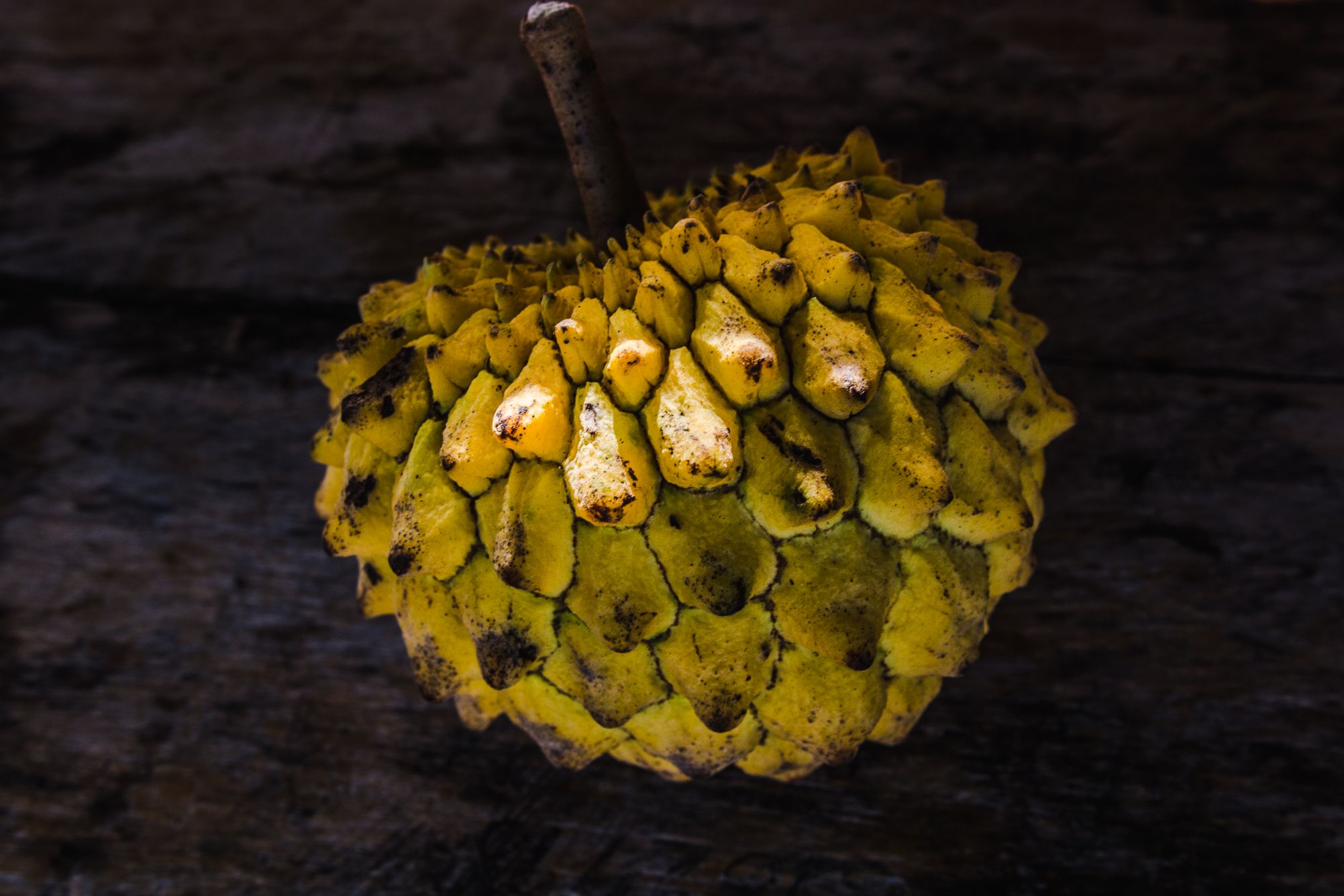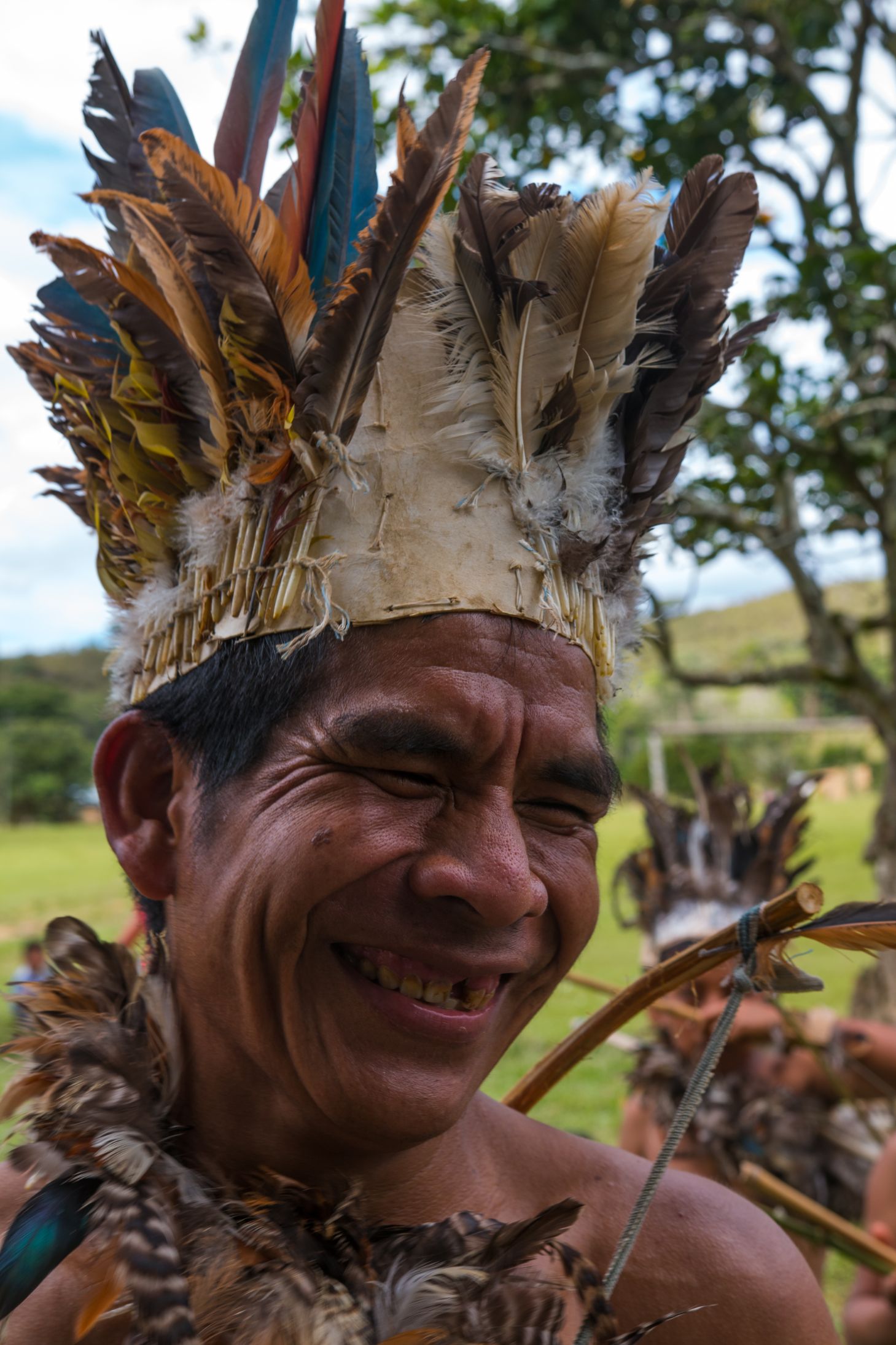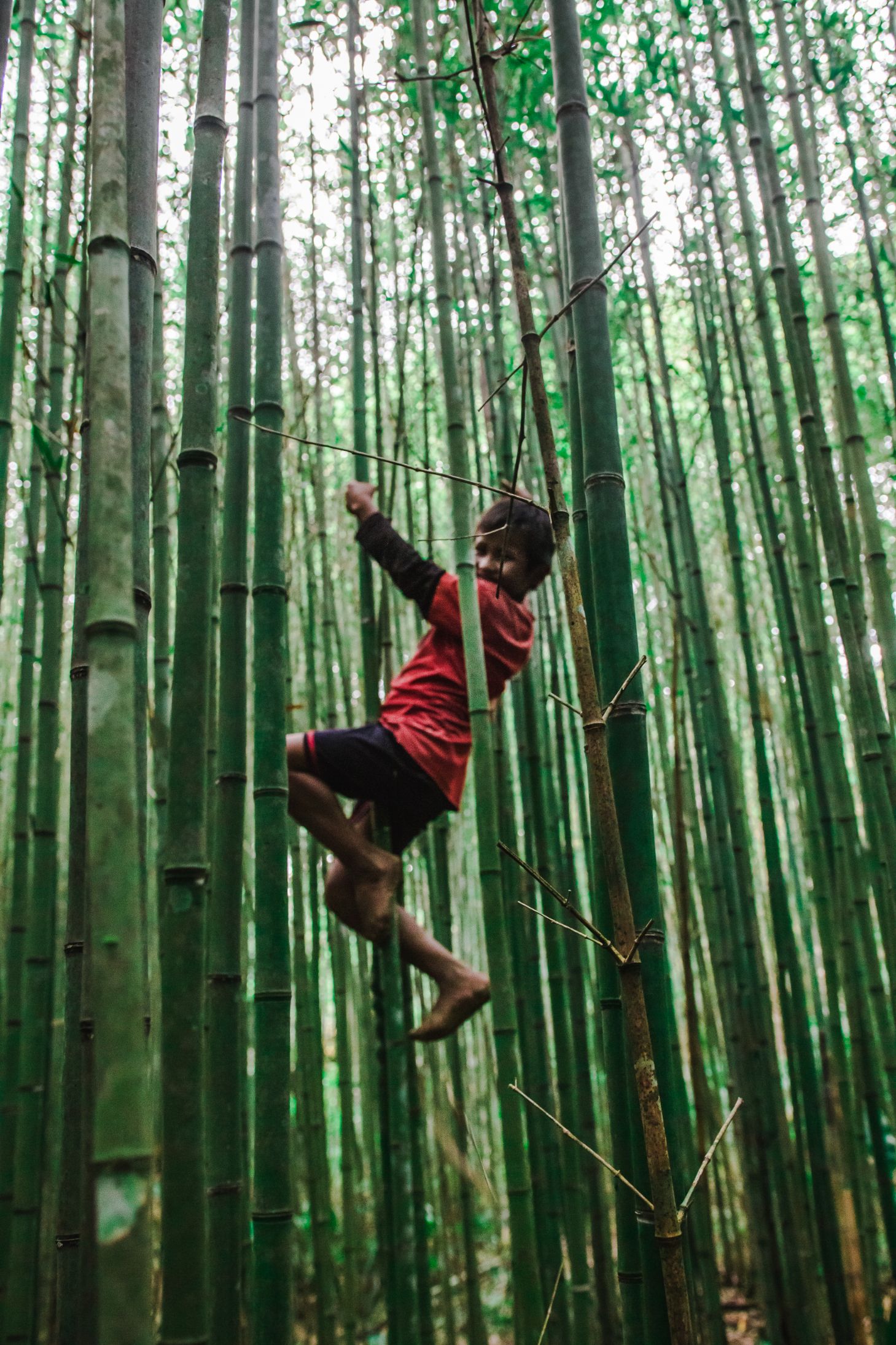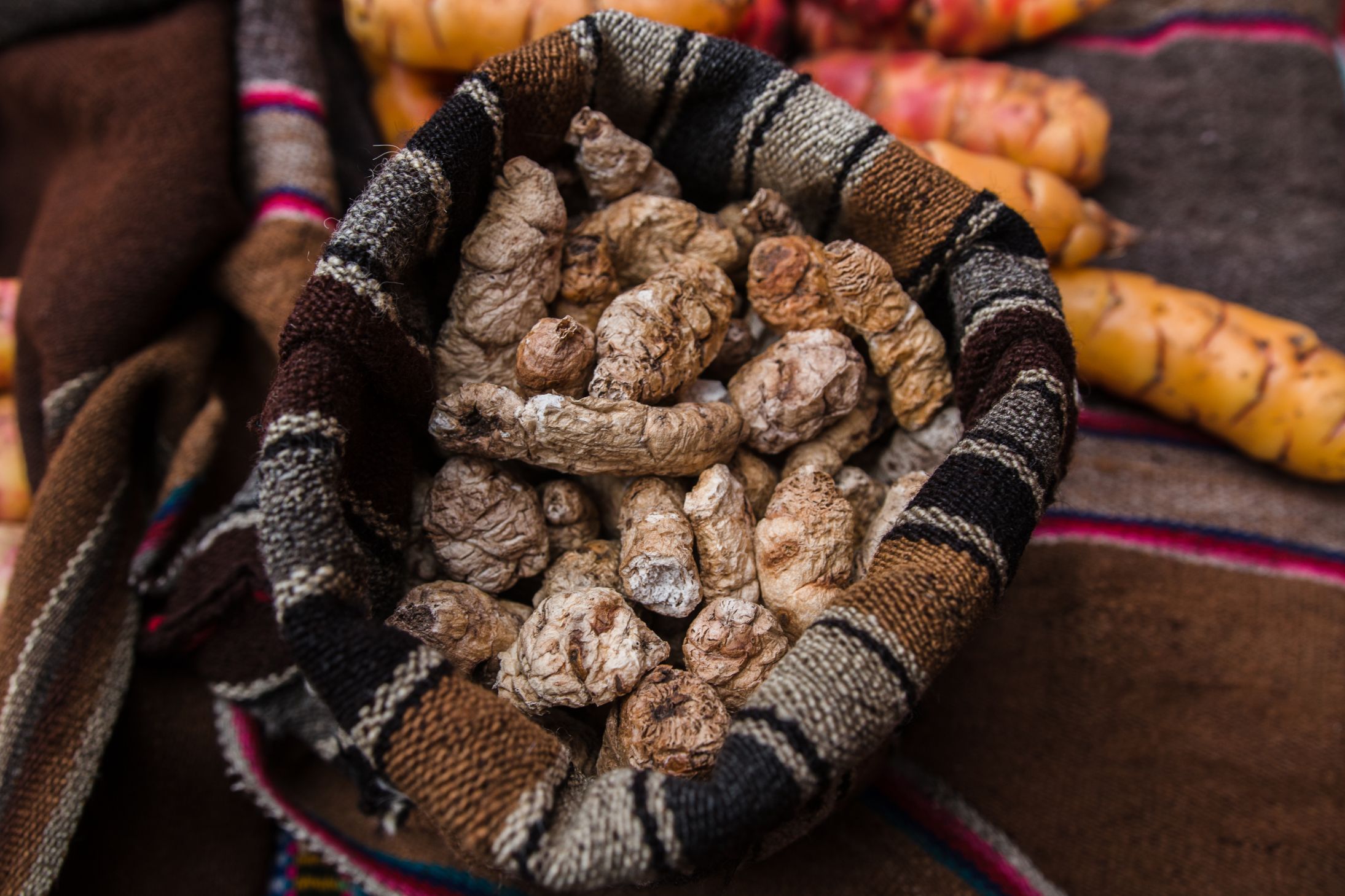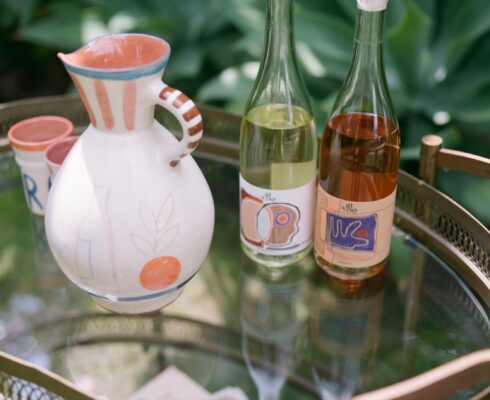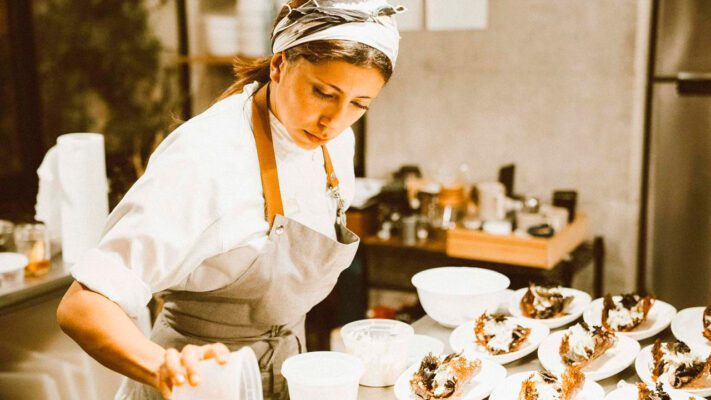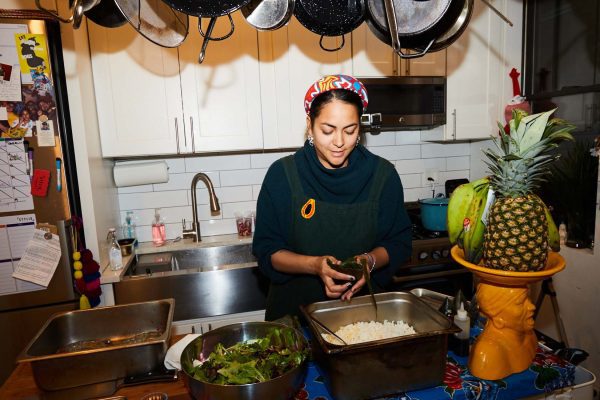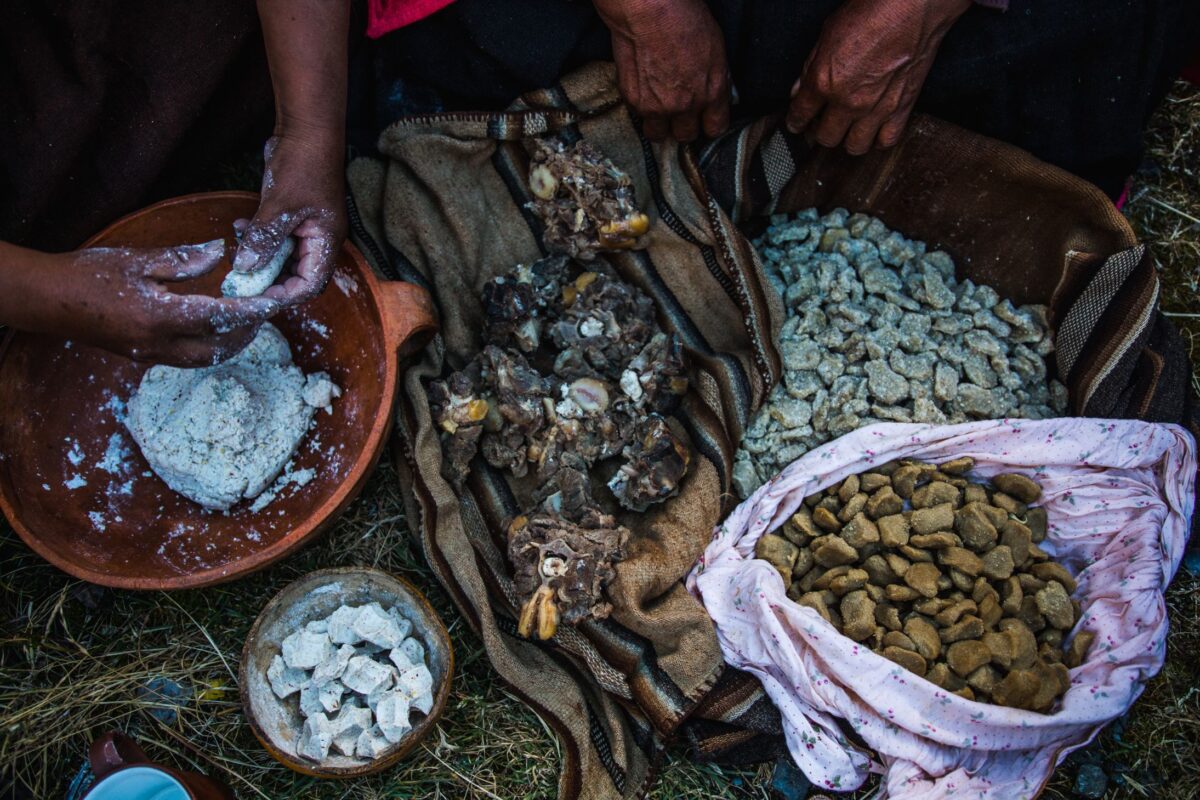
COFFEE WITH
MARSIA TAHA: “TO SHOW THE ENTIRE CHAIN OF PRODUCTION IS EQUALLY AS IMPORTANT AS THE CHEF’S WORK”
Name: Marsia Taha
Profession: Chef, Gustu
Nationality: Bolivian
Zodiac Sign: Capricorn
Instagram: @marsia_taha_gustu
LATINNESS: Marsia, initially you wanted to work in dentistry, and entered in gastronomy by chance. Can you tell us more about how this happened?
MARSIA: At school I needed to complete three years of specialization, and I realized then that I didn’t like chemistry. Although now what I do has a lot to do with chemistry, it’s not really directly. At that time, I thought: “I don’t want to study something I’m not sure of.” Luckily, my parents have always supported me in everything, so when I told my mother I didn’t want to continue medicine or dentistry, but I didn’t know what to study either, she said: “Perfect, if you don’t want that, don’t do it, but, please, study something.”
She also suggested: “You cook well and you like it. Why don’t you go to hotel school? That was fourteen years ago. At that time, there weren’t many schools in Bolivia; that was the first, although it was not professional, only upper and middle techniques. I thought: “Why not? It’s three years, a short career and you don’t have to invest a lot. I’ll try it!”.
I loved it from the first year. From the first week, in fact. I was lucky enough to run into people who are super passionate – super capa as we say– that somehow infect you with their love for what they do. I studied with chefs who are now my friends and have their own restaurants. We are part of a new generation of chefs in Bolivia.
In those days, there were many cooking competitions, as well as scholarship opportunities to leave the country. One day I decided to participate in Bocuse d’Or, a global competition for super-classical French-style gastronomy. I teamed up with a great friend, and we won the chance to travel to Mexico and compete.
That was where the panorama opened up for me. I began to see other things, other kitchens. I saw how Mexicans took advantage of their culture and gastronomy. I went to restaurants that I hadn’t been to before.
Traveling always opens your mind, I came back with a thousand ideas.
Then I won another scholarship for Spain. I traveled, studied and worked for a while. I’ve had good opportunities. I’ve also made good decisions. Everything helped me stay on the right track, and, luckily I decided I wanted to do this.
I’ve been nonstop for 14 years, and I’ve never doubted what I do. I’ve always been super passionate. I feel lucky to have chosen this career, because it was the one. It’s what I like to do every day of my life.
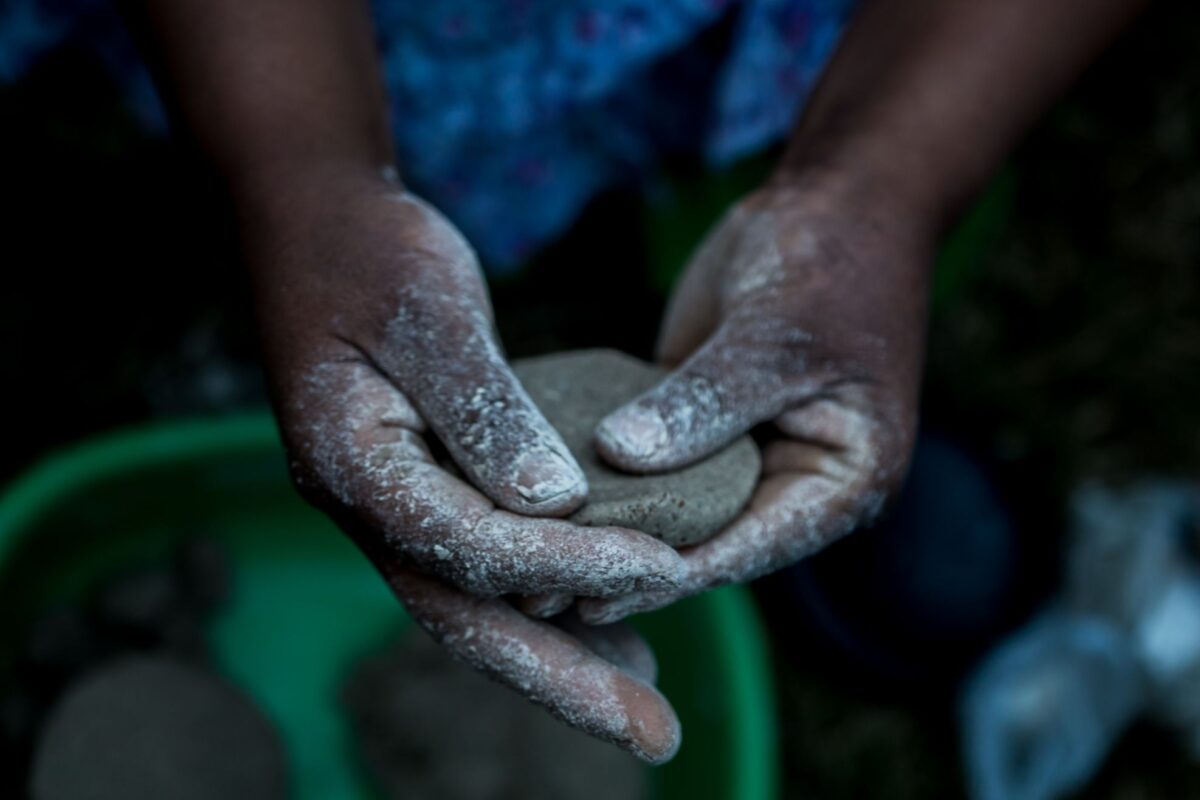
LATINNESS: What were your first lessons as a cook?
MARSIA: I’ve learned most when I’ve been in situations outside of my comfort zone, where I’ve been exposed to more awkward moments, places where I couldn’t speak Spanish, nor English, but still had to learn.
Although now I focus on fine dining, I did not start in a kitchen like that. In Spain I started with a very basic, classic one. I learned about the most important things cooks need to know while cooking for about 100 or 150 people, and that helped me build a solid foundation.
With every chef who comes to Gustu, the restaurant where I work, I say: “You have to start with a super-basic kitchen; do not skip that, because it’s important to know everything “.
Then I went to work in a kitchen in Denmark that wanted Michelin stars. It was different; there was much more technique.
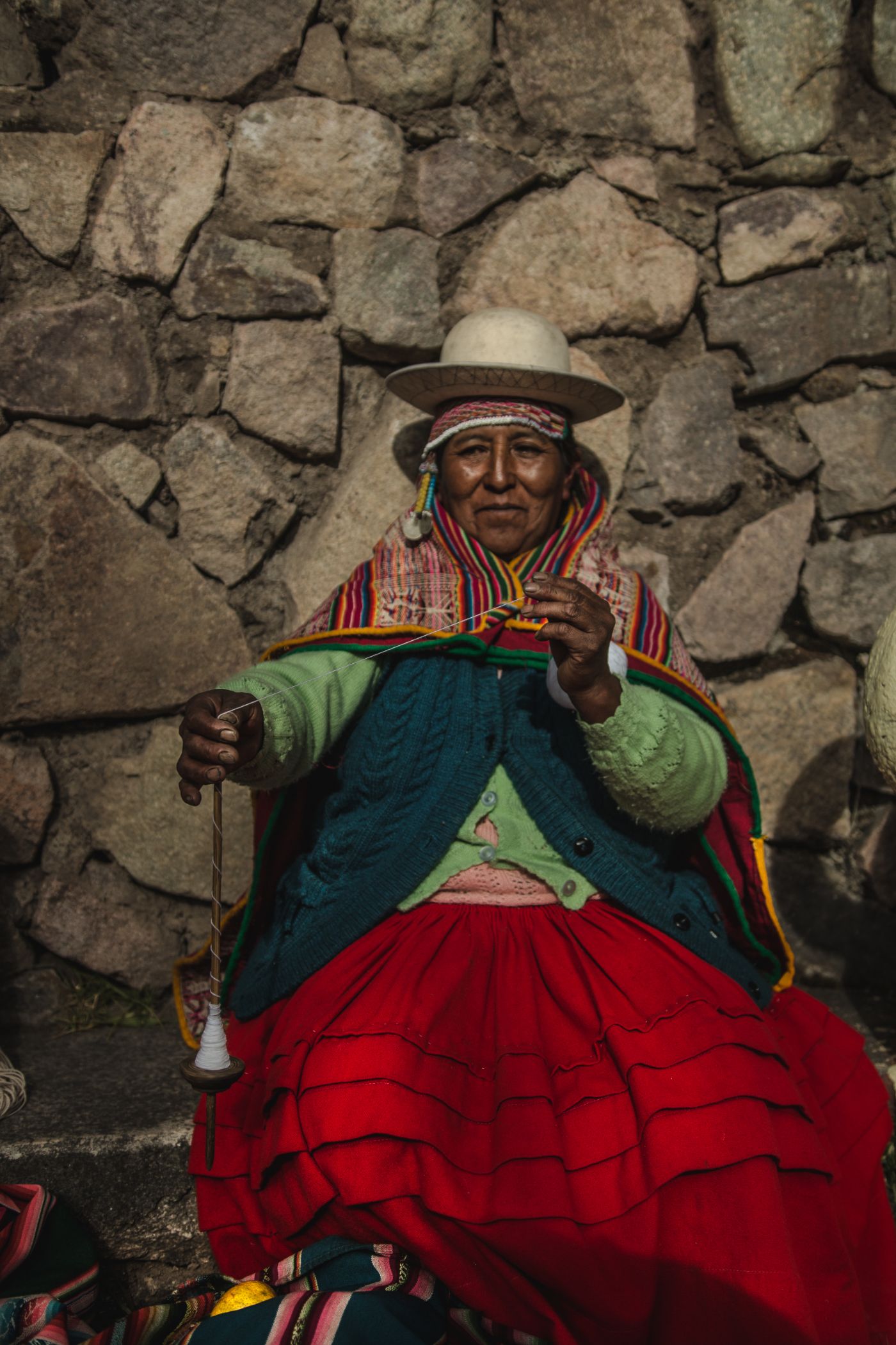
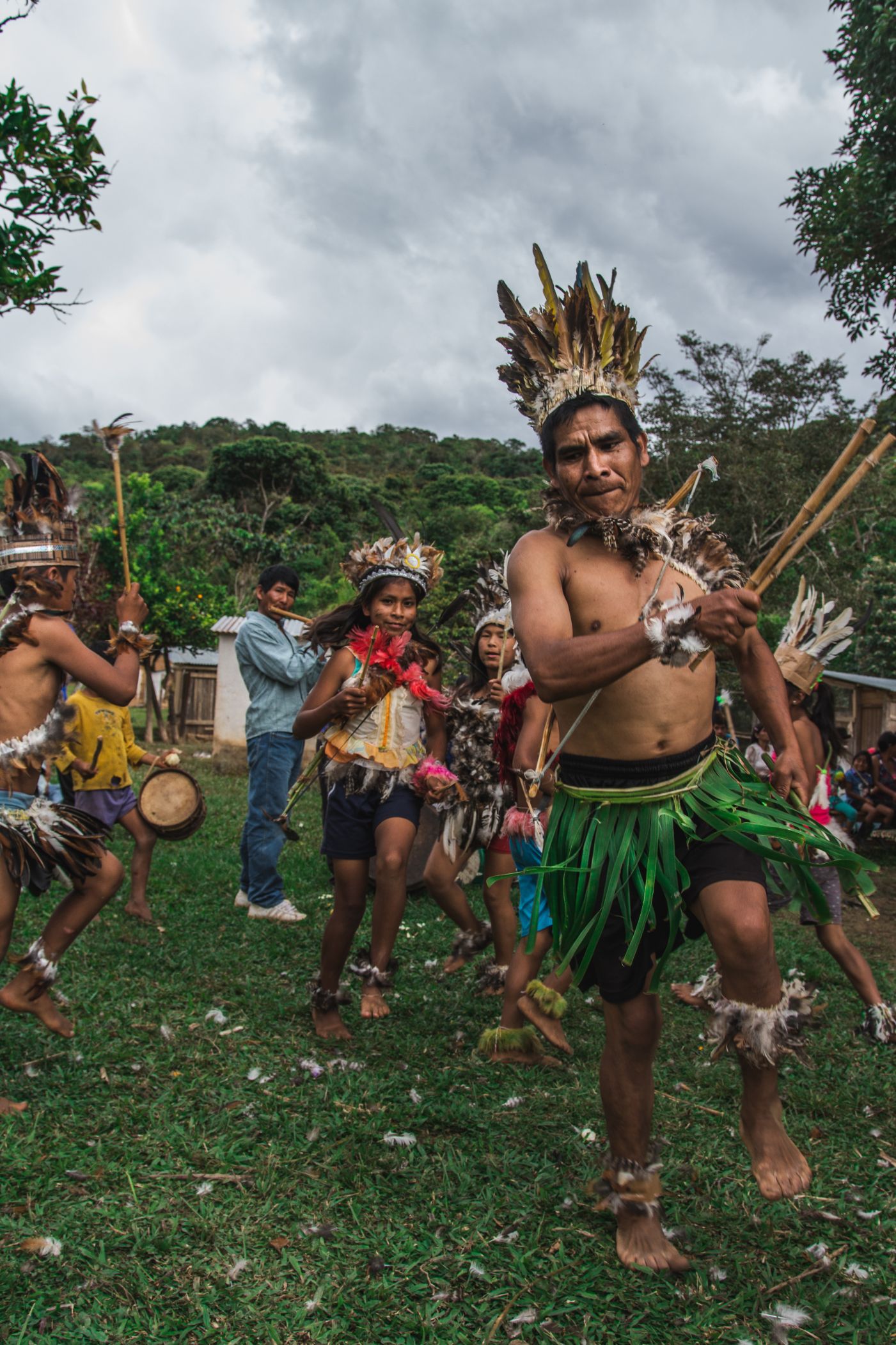
LATINNESS: As a woman, did you face greater challenges?
MARSIA: I’m not going to say no. I went into kitchens where eighty or ninety percent were men. In this case, you usually want to show that you have exactly the same skills. Getting at that level was a bit strange.
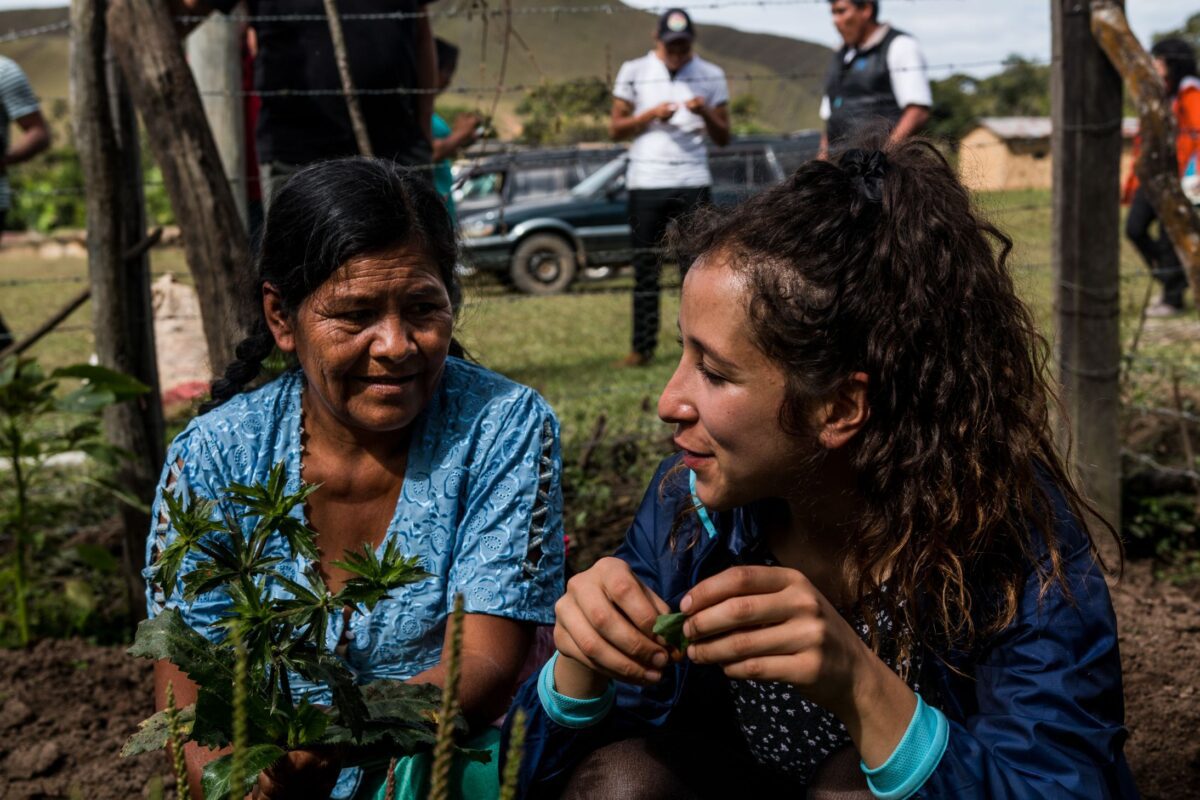
LATINNESS: Early in your career, you saw the potential gastronomy has to transform people’s lives. This is how Sabores Silvestres was born, a group that investigates and preserves the Bolivian culinary heritage. How did this come about?
MARSIA: Sabores Silvestres was born four years ago, and I have been working at Gustu for eight. We’ve characterized ourselves as a restaurant that focuses on local, origin product and, above all, on research.
In case you didn’t know, we started out as a social gastronomy school that operated as a restaurant at the same time. The students learned by doing, which is the best way to learn in the kitchen. Until 2017, we trained five generations of students.
Later, an opportunity for cooperation arose through which we could carry out a much larger project that today is known as the MANQA schools. There are 10 schools in Bolivia and two in Colombia (one in Bogota and one in Cali).
In parallel, we’ve worked on the investigative part. We have a food laboratory where we safeguard native or origin products that are generally not found in local markets, but that are protected within indigenous communities in distant populations or that do not have as much access. They continue to consume these, and as a result, have managed to keep this cultural heritage alive.
Initially the research was not done in such a scientific and profound way. We did it with the knowledge and tools we had as cooks and by reading books. We stayed that way until 2018, which is when we asked ourselves: “How can we scale the investigation to a deeper level with this entire database we have?”
Our scope had a limit, so we began to think about how to develop new investigations, put them in writing, and capture them in photographic or documentary images.
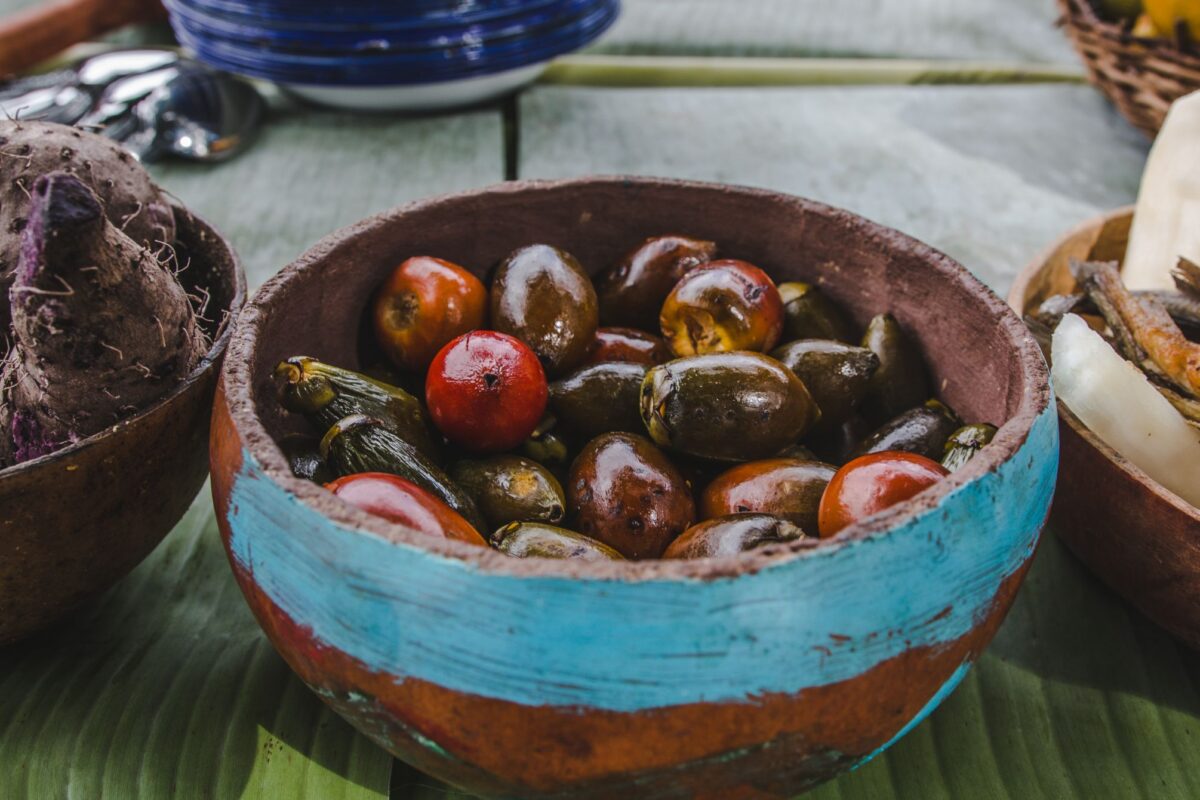
LATINNESS: That’s when WWF came into the picture?
MARSIA: That’s right. Wildlife Conservation Society is an NGO that we’ve already worked with. They have a project called Lagarto Program of the Matusha Aidha Association, which is a Tacana community north of La Paz. It’s located in the Amazonian part of La Paz and they’ve been working there for more than 15 years with sustainable lizard meat.
The community provided us with this meat once a year. So we spoke with WWF and proposed an idea: a fusion between conservation and sustainability, to create a symbiosis with gastronomy. They thought it was great, and that’s how the Sabores Silvestres project was born, as a joint collaboration between WWF and Gustu.
We made up a large team of cooks, scientists, ethno-botanists, agronomists, and biologists, which was just what we needed. For almost four years now, we have undertaken exploration trips to different ecosystems in our country: Amazon, Andes, Altiplanos. We have visited communities to record the ancestral products, recipes and techniques that have been preserved from generation to generation for hundreds of years.
The support of WWF has helped us a lot, because they already had those contacts which they’ve developed over the years. It’s not easy to get into a tacana or Amazonian chimán population as you must earn their trust, show that you want to work with them and, above all, create honest alliances. We get a lot out of these trips; it’s a win-win.

LATINESS: How so?
MARSIA: On the one hand, we investigate, or we have, information and products that not only reach the laboratory, but also the restaurant. So we can show people what our country and our culture has to offer, and give them a tour through our cuisine.
On the other hand, we open economic opportunities for many families who work in the production of these foods: lizard catchers, ranchers, fruit pickers from the highlands, producers of native potatoes or the hundreds of Andean grains that we have.
We work as a community so that we all benefit. We do an exchange of teachings and knowledge, and that is the most beautiful part.
We’ve already completed four trips, four great expeditions. We also often bring a few journalists so that they can record everything we are doing and, perhaps, highlight and give visibility to these communities.
It’s super nice mixing these two disciplines because they have a lot to do with each other. As chefs, we play a very important role in all of this: they put a lot of light on us, especially at this time. We have to take advantage of that light, that small focus that they are giving us, to make our voice heard and to show the entire production chain, which is just as important as the work of a chef. That’s the idea of the project.
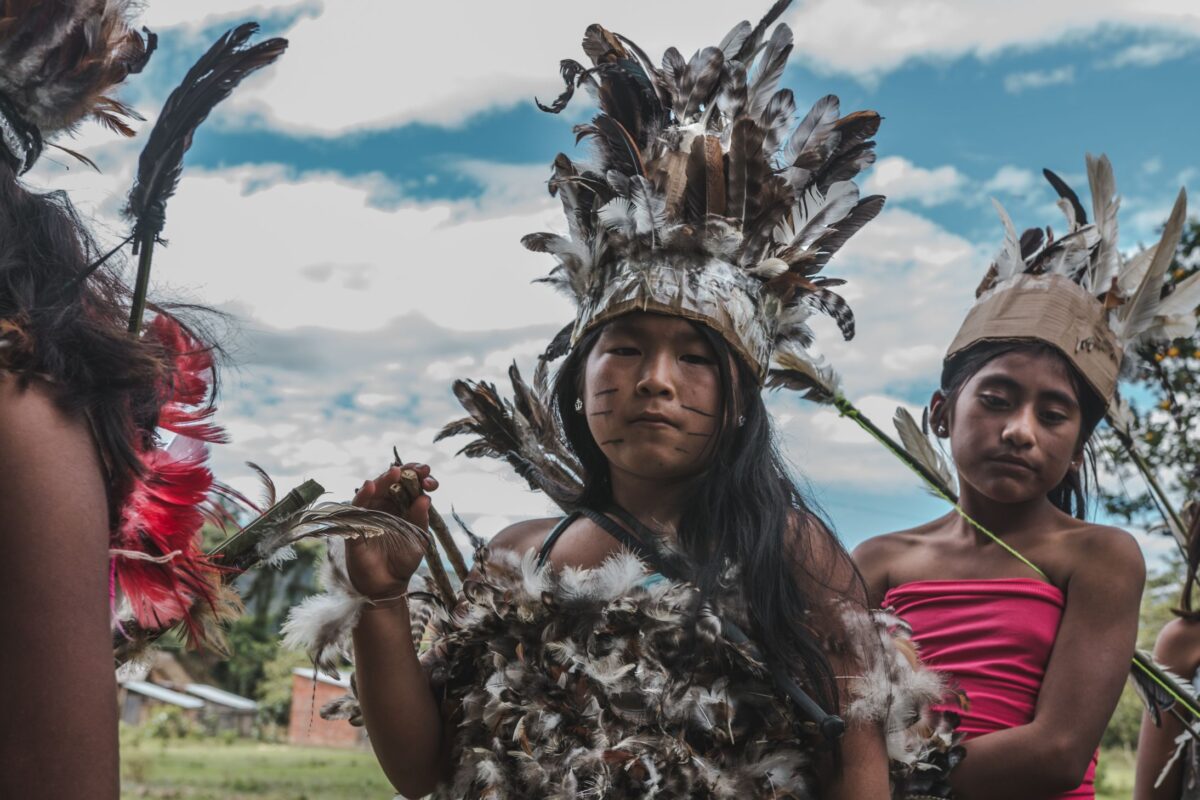
LATINNESS: So it doesn’t stay at the academic or intellectual level; there are communities that really benefit from these expeditions?
MARSIA: Yes, you see a change in the communities. The idea is that this becomes contagious. Maybe one restaurant doesn’t have as big an impact as 15 or 20 doing it, right? If we all think alike and work towards the same goal, we can be very, very strong agents of change.
And yes, it’s influencing the chefs in Bolivia. There are many collective movements that have embraced the Bolivian or native product, always supporting the small producer. In addition, there are more chefs who are proud of their products, serving them in dishes of all different styles, from fine dining to themed cuisine, traditional or a little more elaborate. Although we have different gastronomic styles, we are synchronized in something: the product; that’s the beauty.
LATINNESS: Is there a specific ingredient or flavor that defines Bolivia?
MARSIA: Not really. Why? Because we are such a diverse country in terms of culture, that talking about just one product or mentioning a single dish is going to discriminate against the rest. We are so different! We are so diverse! It really is impossible to put one word or product to describe them all. In Bolivia there are valleys, there is the Amazon, also the highlands, the Chaco… There are hundreds of ecological floors and hundreds of traditional products and dishes that it would be difficult to put just one.
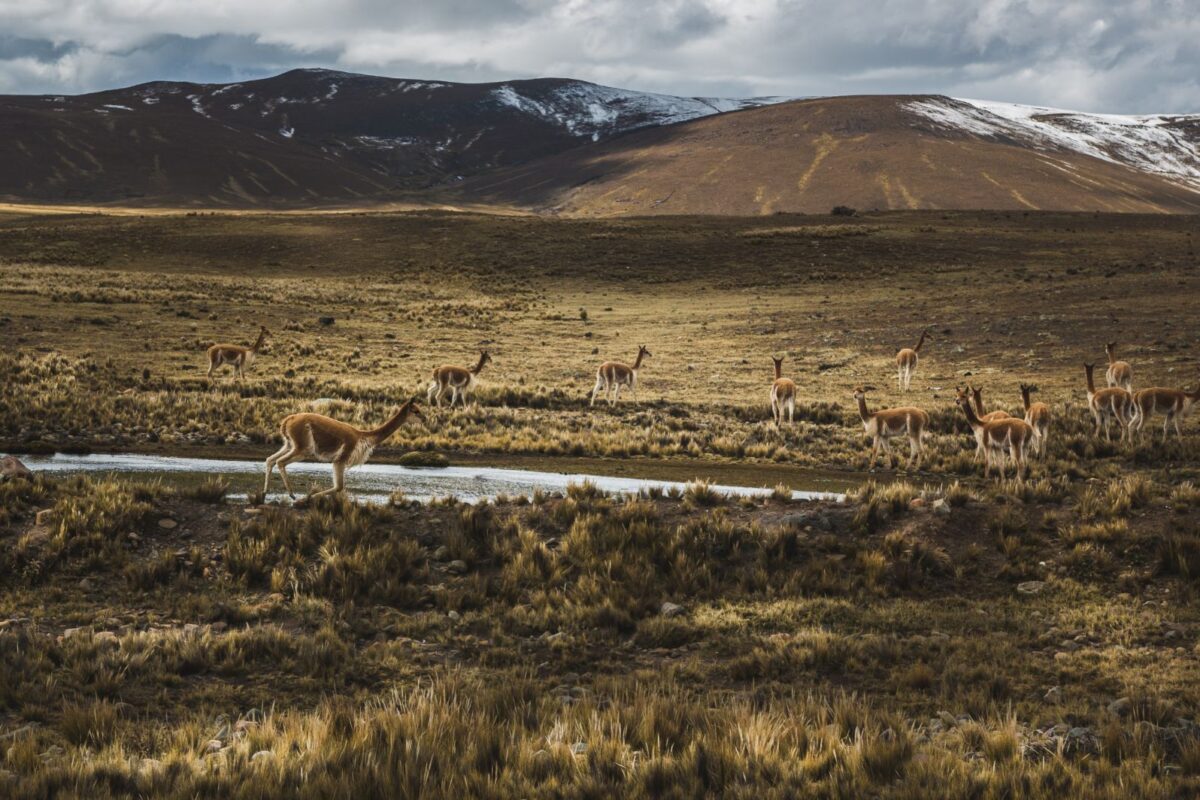
LATINNESS: Is there something that people don’t know about Bolivia? Something that you would like to tell through your work?
MARSIA: Maybe to break a bit with stereotypes. With Bolivia people often imagine, as I’ve seen in Europe where I ‘ve traveled several times, there’s this image of mountains, of snowy hills and little llamas. They see us as only a highland country, when in reality, that’s not even close. In fact, in geographical territory, we are more Amazonian than highland. That is what a lot of people don’t know.
In the past, of course, the dominant cultures were the highlands. Maybe that’s why they see us like this in other countries, but, in reality, we are super diverse.
And well, of course I must mention the coca leaf. Two weeks ago I was at a virtual event talking to two Latin American chefs about the same topic: the demystification of the coca leaf. Here in Bolivia it is sometimes a taboo, and I have run into big problems for taking a few leaves abroad. Coca is believed to be cocaine, and that is completely false.
In my country we have a culture of the coca leaf, a plant that is considered sacred. It is rooted in traditions, rituals and a host of cultural celebrations for hundreds of centuries. Coca is in our day to day. Here they ‘pijcha‘, or chew the mambeo a lot, which is how it’s known in other countries. It basically means sucking the coca leaves for many hours to resist the cold, hunger or thirst, or to give you more energy.
The coca leaf offers hundreds of nutritional benefits: it has a lot of protein, calcium and vitamins. It is excellent for the bones and to treat certain diseases.
Unfortunately, it’s been given a bad name, and I think it’s important people educate themselves and find out what it is in reality.
I think these are the two things that are lesser known outside.
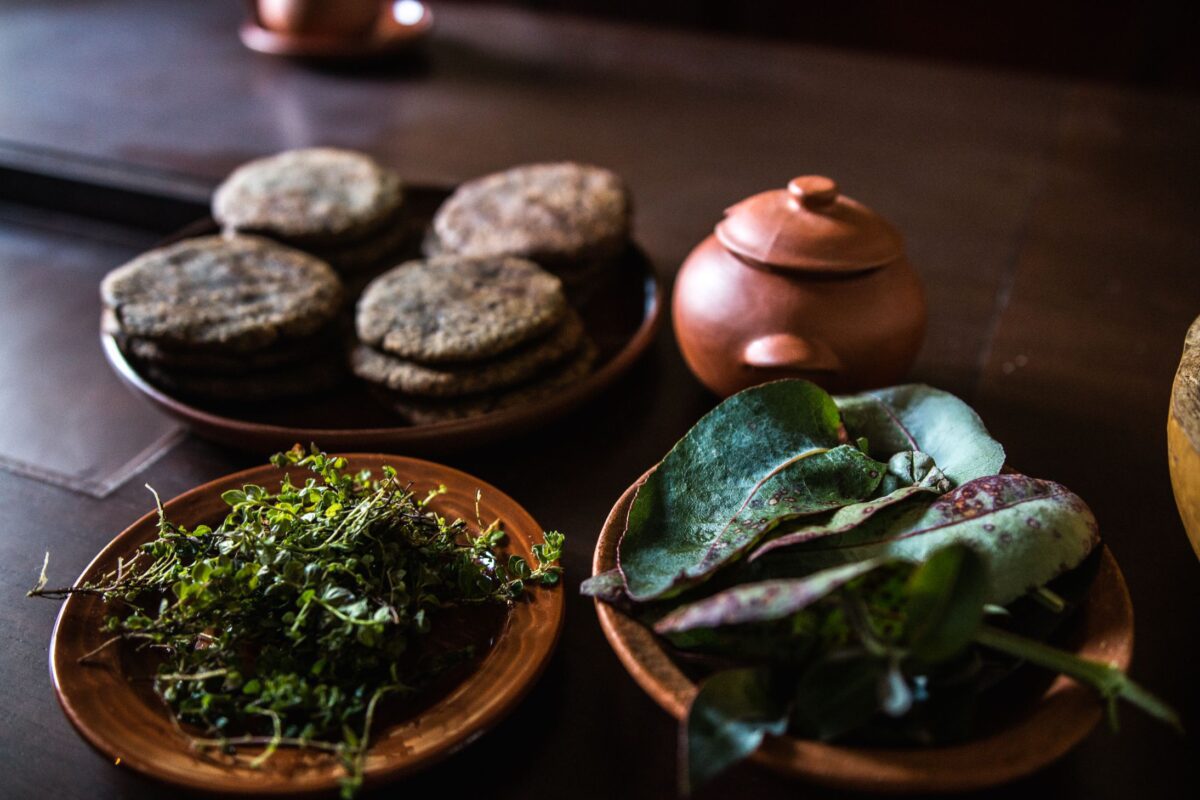
LATINNESS: How did Gustu adapt to the pandemic?
MARSIA: In the middle of the pandemic, we put a thousand things on the table. In fact, we became teachers, because we started giving courses. Everything I’ve said I was never going to do as a cook, I have done: delivery, teaching … Everything! And I’ve loved it because I’ve learned a lot from that.
Of course, like many, we embraced reinvention. One of the ideas was to transform the name of the restaurant, as well as the concept to make it a little more locally friendly during the pandemic. Set cheaper prices, maybe forget a little about fine dining to make it more local, comfortable and healthy cuisine, which is what we all need now: to eat well. It was put on the table, but never happened, so we continue with Gustu.
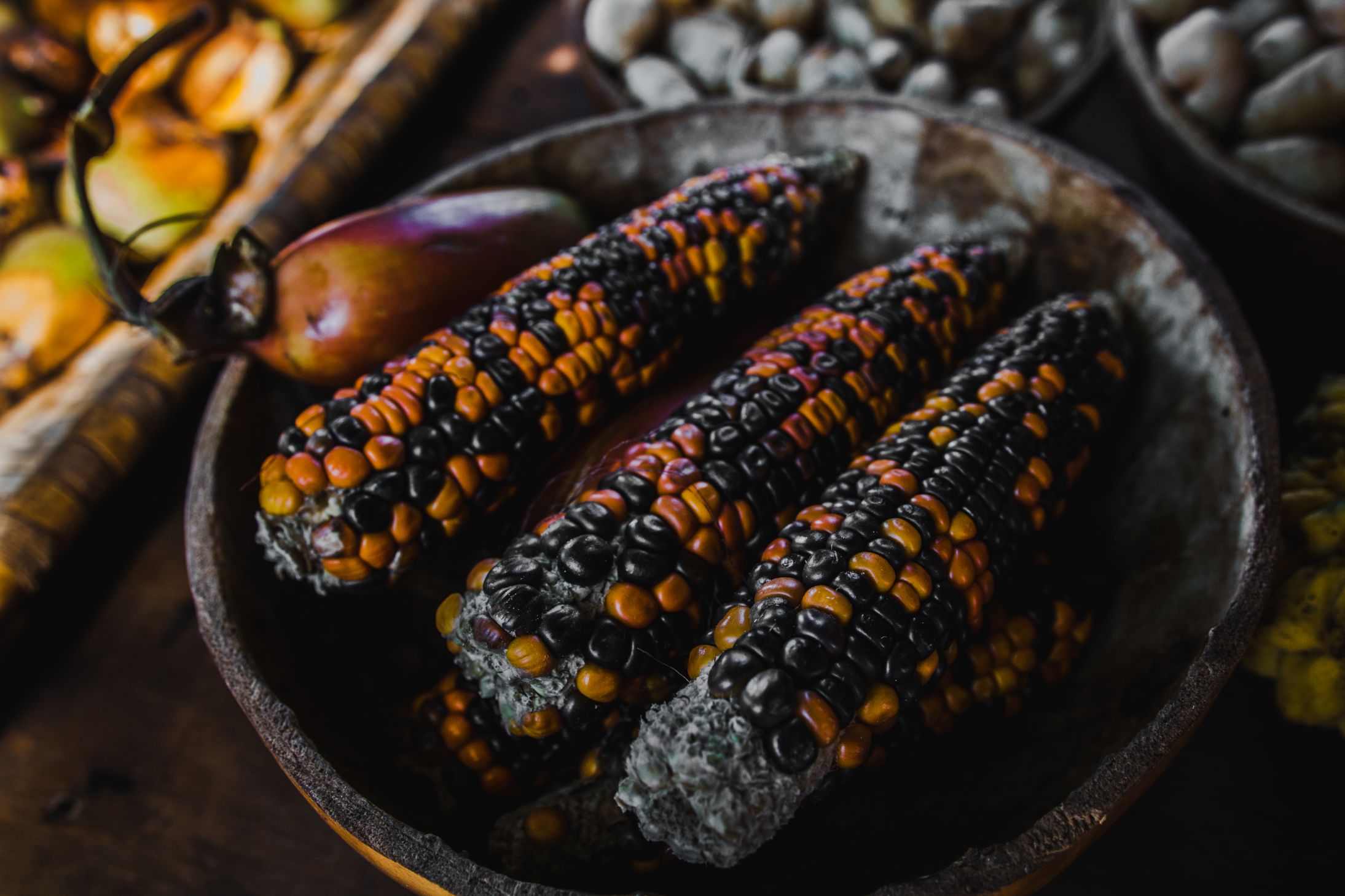
LATINNESS: How do you see the gastronomic industry post-pandemic?
MARSIA: There’s a positive and negative side. On the one hand, there is a perception that there’s more junk food. People want something faster and life is faster. Obviously, the economy has dropped a lot, surely many people are unemployed and prefer to look for something fast to satisfy their hunger, which is not only physiological hunger. The problem is that junk food makes us happy for a while, it’s like a placebo, but then bye.
On the other hand, I also see that many people, and especially many cooks, are beginning to be more aware. They have realized that health is very important. They not only want to change their dishes, including much healthier and local ingredients; They also think about the sustainability of the planet, having more friendly options that pollute less and reducing the use of plastic.
I see both sides of the coin.
In my case, I am positive about the gastronomic future of my country, especially because of everything we have built before. It has been eight or ten years in which there have been very important changes in Bolivian gastronomy. Bolivia has begun to look inward and no longer outward. Before it was the other way around. We have to keep maintaining this, keep working and improving.
There is a lot of reflection in these times and I see a beautiful future. Nice things are coming for Bolivian and Latin American gastronomy. I am super positive. I think people are going to start going out more, enjoying more and consuming more. Maybe, I don’t know, but I have that feeling.
People have realized that life is on the corner. If you suddenly get sick and the next day bye, you haven’t enjoyed yourself, you haven’t traveled, you haven’t eaten well, and you haven’t done a lot of things. We hope to have more tourism, more people visiting us.
Gustu has been quite a touristy restaurant. Fifty percent of our diners are tourists, so this is something we need: this reactivation soon. We hope so.
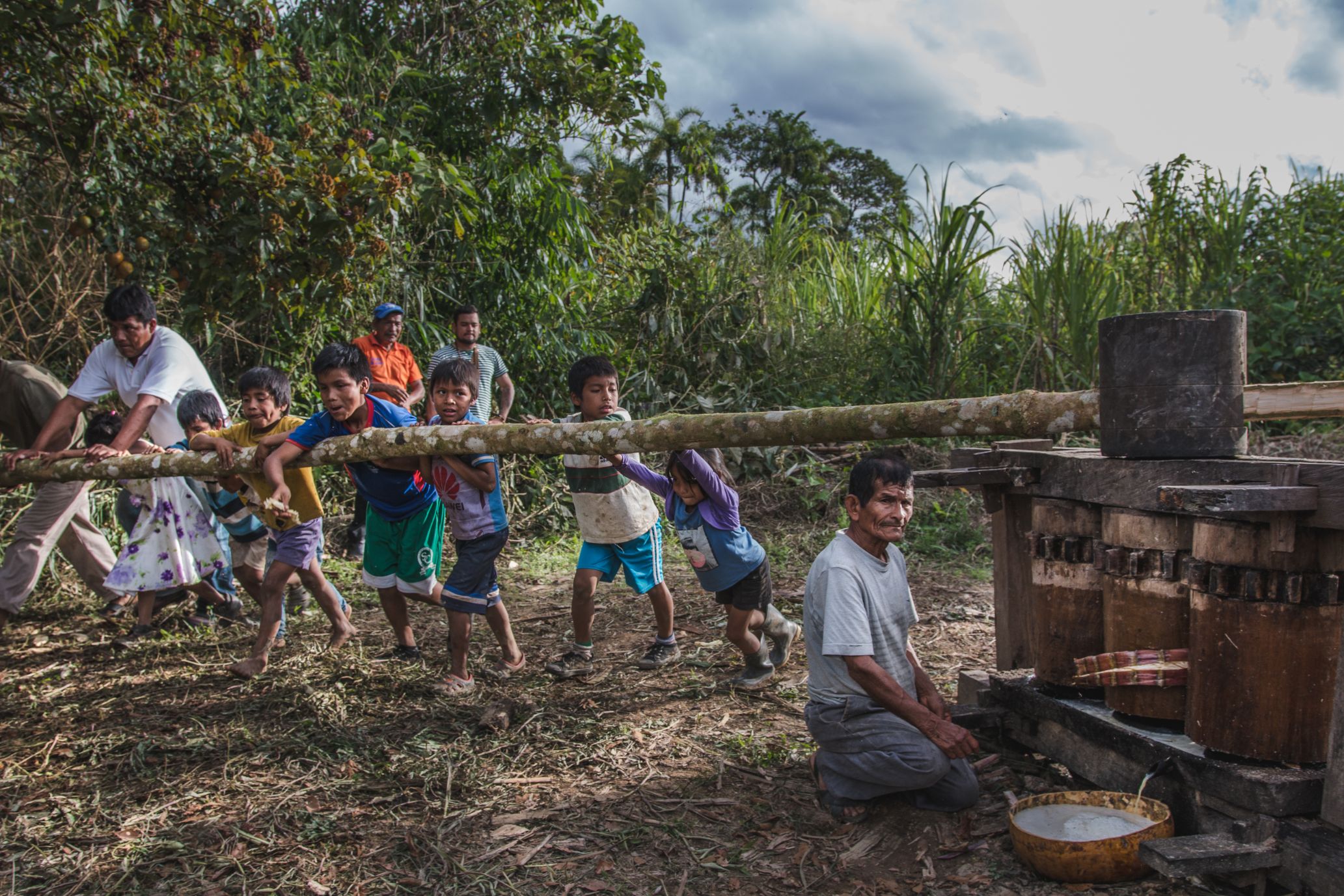
LATINNESS: And what is a dream you’d like to accomplish?
MARSIA: Everything is developing, step by step, just as I’d like for it to develop. The Sabores project, of course, has always been a very big dream, and it’s happening. It was paralyzed for a while, but we want to continue the momentum. We want to continue traveling. We want to publish books. We want to continue documenting, and we want that record to be shared with Bolivia and with the world.
A dream is to put all the knowledge and what we have produced during these eight years, and for people to see it, because this has to be shared. It is useless if it is kept in a few heads or in a few books. We need Bolivia to know its products. We need to spread that love for the product.
That is one of the challenges we have now: publish a book with all the expeditions, photographs, products and share it with our people. See more chefs leaving our kitchens and opening more businesses with incredible concepts, respecting the producer and the product.
To see that and see a country with a more respectful gastronomy, more loving of its own cuisine. To keep growing. We need many more restaurants and more cooks here in La Paz and in Bolivia so that we can get bigger and grow together.
